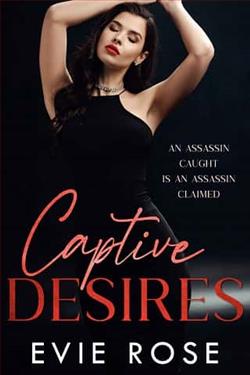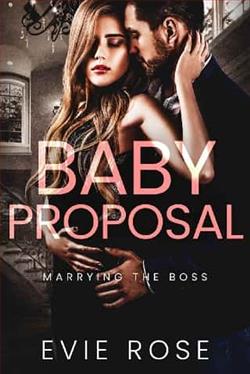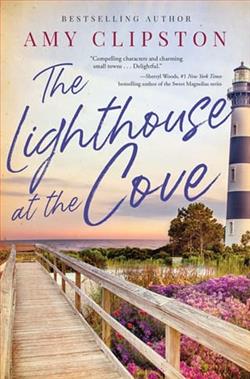Page 37 of Sinful Scottish Laird
“Perhaps you ought to wait for the toss until you’re a wee bit bigger, aye?” Somerled suggested.
No, he should not wait—could Somerled not see how happy Ellis was? Daisy tried to erase the image of Arrandale’s frown as she’d led Ellis away. As if she were doing something wrong! She supposed he would rub the boy’s knee with grass and have him go again.
But she couldn’t deny that she had never seen her son quite as happy as he was now, with his bloodied knee and dirt on his coat and the glory of having thrown a part of a tree.
CHAPTER TEN
THEFOLLOWINGDAY,Cailean met Aulay at Balhaire and the two of them sailed to Newark on the River Clyde to sell some of their misbegotten wine and tobacco.
Hamish Gib, the “agent” they generally bargained with, was a stout Glaswegian with ears that looked like a pair of sails on either side of his head. “Have you any gin, then?” he asked as he counted the gold pieces he owed them, having made quick work of the negotiation over their cargo.
Aulay looked at Cailean. Aulay very nearly had been apprehended on his last trip to Calais, as the cove they’d used to hide from passing ships had been discovered and raided by the Royal Navy. But as Cailean had explained to Lady Chatwick, they would take their chances. They were Highlanders—they did not act from a place of fear, and even now, with the stakes mounting, a look of understanding flowed between them. Aulay said, “We can get it, aye.”
“I can sell as much as you can carry,” Hamish Gib said.
When they’d been paid, they walked outside the ramshackle office and onto the busy dock. They paused there, shoulder to shoulder, and looked down at their ship. “Abbot’s Cove is lost to us,” Aulay said in Gaelic.
“Then we’ll sail to Inverness and take it over land. Rabbie can meet us with ponies.”
“Our ships are known to them. Perhaps we ought to let the route cool for a time.” He glanced at his brother. “I’ve found a man willing to trade from Bergen.”
“Norway?” Cailean asked. The Norwegians were notoriously proprietary with their trade.
“Lumber and salt,” Aulay said. “Glasgow is building at such a pace we could make a nice profit. In the meantime, the English think they’ve won.”
It was a good idea, Cailean agreed. It was at least worth going to Bergen to have a look.
The brothers carried on—there were things they needed to transport back to Balhaire, such as wool, and furnishings for Arrandale. Cailean was thankful that he had something to occupy his hands and his mind. Anything to take his thoughts from the lady of Auchenard.
If his brother noticed his distraction, he didn’t say so, but Cailean felt almost as if he had an ague, in spite of being as fit as any man. He knew what ailed him, because he’d felt this way once before in his life—it was his bloody rotten luck to have been bedeviled by his neighbor. Only this time, the bedevilment by a woman didn’t fill him with anxiety and restless thoughts. He was too old for the unchecked desires of a young man. This time, the bedevilment merely haunted him.
He couldn’t keep the barmy woman from appearing in his thoughts. Images of her, with that fiendish little sparkle in her eye, or a memory, such as the creaminess of her skin, or the way she felt against him when he’d kissed her, would creep up on him at the most inopportune time. He kept hearing her laugh, particularly in crowds, and once he’d even turned about, certain she’d somehow found him in Glasgow.
Or course she hadn’t.
That laugh and those green eyes were for Spivey, however, and that knowledge raged in Cailean’s heart. It was entirely irrational—it was not as if he’d lost her to Spivey. And he didn’tknowSpivey. What he knew was that it was likely Spivey’s desire was to see Cailean and Aulay in a dungeon somewhere, and probably hanged, if rumors of what happened to smugglers was true. But for all Cailean knew, Spivey could very well be a decent man.
And still, that did not ease him. He was quite cross with himself for dwelling on it. Disgusted, really—this was not the sort of man he was. He did not occupy his thoughts in this manner. But God help him if he could quit it.
They’d been gone ten days or so when Cailean collected Fabienne at Balhaire, and with Rabbie’s help, drove two wagons of furnishings to Arrandale, which they stored in one of the finished rooms. Cailean was bone weary and ravenous, and he’d come home to an empty larder. When he’d seen Rabbie off, Cailean picked up his fishing tackle, whistled for Fabienne and walked down to the loch to catch his supper.
The air was thick and heavy that afternoon, and a bank of clouds had formed over the hills. Cailean guessed he had an hour, maybe less, before rain fell.
He was not having any luck. He kept moving along the shoreline, casting his line again and again, hoping for a nibble, and receiving nothing for his trouble.
The first distant rumble of thunder frightened Fabienne, and she darted away, bound, in all probability, for the dark corner of the kitchen where she generally waited out storms.Damn fish—would none of them be attracted by his lure? Cailean kept moving, kept casting, his focus on the water, on any sign of movement beneath the surface. He was startled by the sound of voices and glanced to his right. A boat was coming around a tree-lined bend in the loch’s shore. There were two people on board, one of them a woman holding a parasol. He groaned—there was only one person that could be.
He watched as the boat glided toward him. The man rowing the boat had his back to the shore, rowing blind like a fool. Who rowed her about like a queen? She was lounging on pillows, he noticed, the parasol dipping with the occasional breeze.
As his boat glided closer to shore, he saw it was Somerled who rowed her about.Diah,the man must have debts up to his ears. There was something else—Somerled was wearing a wig. Awig.
“Lord Arrandale!” Lady Chatwick called out to him, waving as if he hadn’t seen her.
The small rowboat was moving too fast, Cailean realized. “Have a care, man! You’re headed for—”
The boat slammed into a rock outcropping. Somerled must have realized it a moment too late, for he leaped to his feet and tried to stop their collision with an oar to the rock. It snapped cleanly in two, and Somerled toppled out of the boat and into shallow water. Lady Chatwick shrieked. She dropped her parasol and grabbed onto both sides of the boat, somehow managing to keep from tipping out herself.
Somerled gained his feet, the water being only thigh deep where he stood. Lady Chatwick took one look at him and laughed quite gaily.















